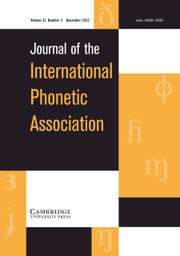Jimmy Gene Harris died in Seattle on 30 September 2012, at the age of 82. He led a remarkable life. He was a soldier of fortune, a champion for human rights, an exacting phonetic fieldworker, an observer of human nature, a teller of stories, a teacher and a mentor. Raised in the Arkansas Ozarks, he began his international adventures as a US Marine Corps sergeant in the Korean War. He pursued his linguistic education in Mexico City and at the University of Washington, with an MA in 1966 specializing in Japanese and Asian Studies, while also carrying out fundamental language revitalization fieldwork with the Stó:lō Nation (Salish) in the Fraser River Valley of BC. In 1973, he obtained an MEd from the University of Southern California. On leave from his duties in the field from 1976 to 1978, he spent time refining his phonetic knowledge with David Abercrombie in Edinburgh and with Eugénie Henderson in London.
Jimmy worked for many agencies throughout his career, including the Ford Foundation, the UN, and the Peace Corps. In every new official capacity in which he served, he worked with speakers of different languages, usually from the remotest of regions. He carried out phonetic research, in the field, on over 300 languages, in East Asia, Southeast Asia, the Middle East, South America, North America, West Africa, and the former Soviet Union. He taught general phonetics in several universities, in Armenia, Brazil, Laos, Nepal, Indonesia, Scotland, and Thailand, over a 25-year period; he produced foreign-language textbooks for English speakers on Armenian, Aymara, Estonian, Hausa, Igbo, Latvian, Lithuanian, Thai, and Yoruba; and he trained college and university teachers of English as a second language in both applied linguistics and TEFL for over 20 years. Many academic phoneticians, particularly in Thailand, owe their training to Jimmy.
Possessing unrelenting good will and compassion, Jimmy was undeterred by danger and was a solid and reliable fighter for minority people's rights. His sense of duty and of humanitarian service, including the maintenance of minority ethnic groups’ languages, was a constant and active concern. He was a man of unyielding integrity and of rare achievement. In 1980, he was engaged as a principal frontline worker for the United Nations High Commissioner for Refugees in Thailand, organizing and protecting Cambodian refugees fleeing the Killing Fields. For that service, he was awarded a personal certificate of the Nobel Peace Prize, won by the Office of the UNHCR in 1981. He was very proud of that accomplishment, but nothing was more important to him than teaching, learning, and providing access to education, particularly for the linguistic communities he worked with. Jimmy never stopped doing phonetic research. In his later years, he revived his passion for experimental methods and his talent for working with people as an adjunct professor with the University of Victoria.




